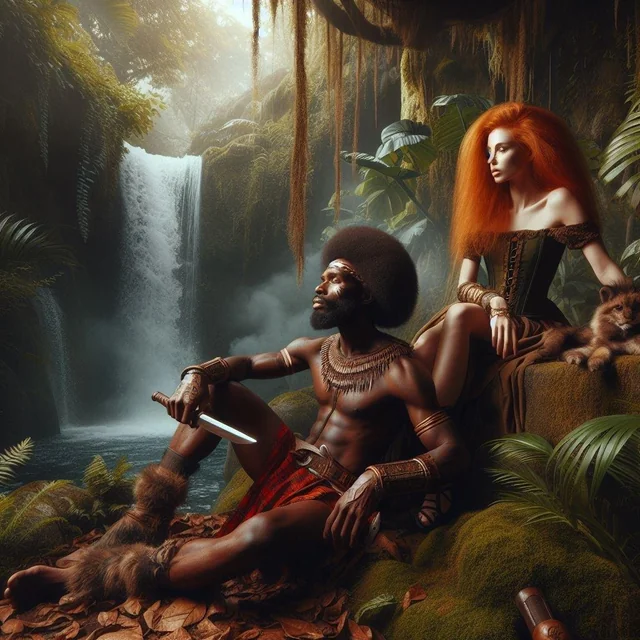African American Folklore : Hurricanes Are The Anger of Enslaved Ancestors!
- blackcoralinc2021

- Jul 27, 2023
- 3 min read
There are African-American folktales about Hurricanes being the energy source of our ancestors; stolen Africans, beaten and lost at sea.

This recent Hurricane season and record ocean warmings of 101 degrees F has captured the world’s attention and has us all questioning what to expect next, and the talk of hurricanes and history of slavery leads me to ask are African ancestors angrier than ever and showing that anger by releasing the spirit power of horrible hurricanes to destroy Florida for the disrespect shown. Hurricane science has proven that most are formed around Africa’s coast and follow the same path as slave ships. There are African-American folktales about Hurricanes being the energy source of our ancestors; stolen Africans, beaten and lost at sea. Can Hurricanes be a mythical avenger that comes to right the wrongs of our ancestors? Souls of the sea, who unleash their wrath annually unto their oppressors?

Is there a connection between the Atlantic Slave Trade Routes and the path taken by hurricanes? A Hurricane like all-natural disasters does not discriminate. I would hope that if a spell of a sort were cast into the ocean in honor of my ancestors, its effects would not affect black people and recent events in Florida have caused a lot of black and Brown people to pack up and go leaving behind those who are not yet ready to call it quits on Florida. Although it would be irresponsible and cruel of our African ancestors to call upon this mythical storm to be released in the same direction as their loved ones people can't say they weren't given enough signs. Hurricanes bring death, destruction, and suffering to all people, no matter race, economic or social status. Katrina proved that the majority of people affected were poor black people. Yet, there’s the talk of an angry oppressed African spirit of the sea?
Is it important to make sure the slave masters of yesteryear are held responsible, we should teach historical truth or reap the consequences of the actions and the lies that have followed all throughout American education. Should we warn the racists about our ancestors needing vindication via Hurricanes? Or do we ourselves get up and move to greener pastures where black and brown people are on the rise learning more about emergency preparedness, pushing the government to have a proper emergency plan & monies for the poor, sick, elderly, and animals to get out in time. And for the others let the chips fall where they may even though it’s proven that most people stay at home because they do not have the resources to leave there are websites like Black Coral Inc.org that can help you prepare and protect your families. There’s no proper evacuation plan with the hospitals and nursing homes, and now it has proven that there should be.
My ancestors were taken from their land, packed into ships, and forced to work as slaves early in American history. Many of them perished along the way from the horrific conditions on those slave ships. I am sorry if that is hard for you to read, but they are facts. Facts that should not be hidden from the history books or dismissed. In meteorological studies, we learn so much from looking back at past storms. Retrospective analysis is probably a good thing for history too. Meanwhile...The word hurricane comes from the Taino Native American word, hurucane, meaning evil spirit of the wind.Guabancex is the zemi or deity of chaos and disorder in Taíno mythology and religion, which was practiced by the Taíno people in Puerto Rico, Hispaniola, Jamaica, and Cuba, as well as by Arawak natives elsewhere in the Caribbean.
She was described as a mercurial goddess that controlled the weather, conjuring storms known as "juracán" when displeased. Ọya (Yorùbá: Ọya, also known as Oyá or Oiá; Yàńsàn-án or Yansã; and Iansá or Iansã in Latin America) is an orisha of winds, lightning, and violent storms, death, and rebirth. She is similar to the Haitian lwa Maman Brigitte who is syncretized with the Judeo Christian Saint Brigit.





My Goodness you confirmed my theory even in the bible it says Abel's blood cried from the GROUND AND God heard it wow moral of the story do unto others as they would do unto nice post